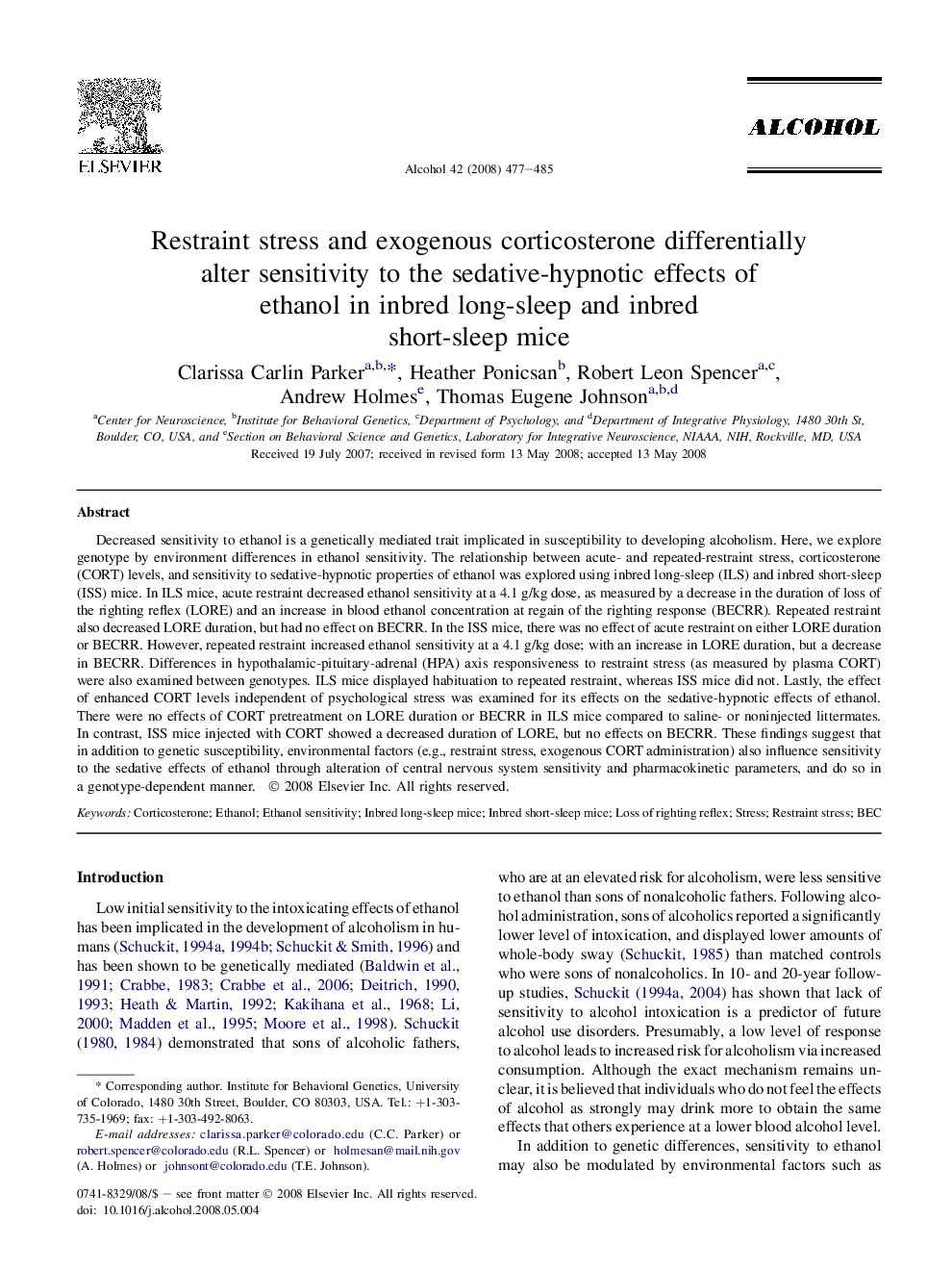| کد مقاله | کد نشریه | سال انتشار | مقاله انگلیسی | نسخه تمام متن |
|---|---|---|---|---|
| 1067803 | 948927 | 2008 | 9 صفحه PDF | دانلود رایگان |

Decreased sensitivity to ethanol is a genetically mediated trait implicated in susceptibility to developing alcoholism. Here, we explore genotype by environment differences in ethanol sensitivity. The relationship between acute- and repeated-restraint stress, corticosterone (CORT) levels, and sensitivity to sedative-hypnotic properties of ethanol was explored using inbred long-sleep (ILS) and inbred short-sleep (ISS) mice. In ILS mice, acute restraint decreased ethanol sensitivity at a 4.1 g/kg dose, as measured by a decrease in the duration of loss of the righting reflex (LORE) and an increase in blood ethanol concentration at regain of the righting response (BECRR). Repeated restraint also decreased LORE duration, but had no effect on BECRR. In the ISS mice, there was no effect of acute restraint on either LORE duration or BECRR. However, repeated restraint increased ethanol sensitivity at a 4.1 g/kg dose; with an increase in LORE duration, but a decrease in BECRR. Differences in hypothalamic-pituitary-adrenal (HPA) axis responsiveness to restraint stress (as measured by plasma CORT) were also examined between genotypes. ILS mice displayed habituation to repeated restraint, whereas ISS mice did not. Lastly, the effect of enhanced CORT levels independent of psychological stress was examined for its effects on the sedative-hypnotic effects of ethanol. There were no effects of CORT pretreatment on LORE duration or BECRR in ILS mice compared to saline- or noninjected littermates. In contrast, ISS mice injected with CORT showed a decreased duration of LORE, but no effects on BECRR. These findings suggest that in addition to genetic susceptibility, environmental factors (e.g., restraint stress, exogenous CORT administration) also influence sensitivity to the sedative effects of ethanol through alteration of central nervous system sensitivity and pharmacokinetic parameters, and do so in a genotype-dependent manner.
Journal: Alcohol - Volume 42, Issue 6, September 2008, Pages 477–485